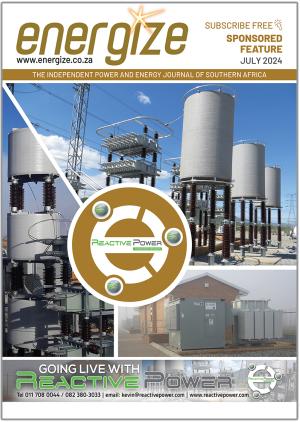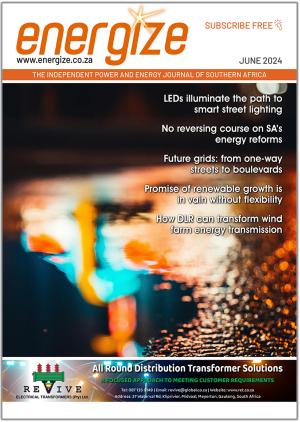The current water crisis confronting South Africa is due to the sector still largely being burdened by ageing infrastructure, water quality issues, and pipe bursts resulting in 41% of leakages attributable to non-revenue water. “There is room for improvement, but only if the sector can adopt and embrace change,” argues Joyce Moganedi, Power and Water Local Division Sales Manager at ABB.
Cutting-edge solutions can be deployed to ensure sustainable management of the complete water lifecycle. This would mitigate the impact of natural disasters such as drought and floods. Such solutions are centred on supervisory control and data acquisition (SCADA) systems.
SCADA is the most widely used automation system for water applications globally. In a world where every drop of water counts, water and wastewater plants play a critical role in bridging the gap between the growing demand for and scarcity of this precious resource. Automation and control technologies are at the core of the challenge.
For example, ABB Ability Symphony Plus SCADA can easily be adapted or engineered for a broad spectrum of applications in the water and wastewater industry, including water distribution networks, water pumps, water transmission pipes, drinking water, water mains, pumping stations and wastewater treatment.

“The flexibility and scalability of SCADA makes it ideal for the entire spectrum of clean power and water installations, be they locally or remotely operated plants, fleets or networks,” notes Moganedi. It allows for specific plant processes to be monitored, controlled and managed.
This ranges from visual oversight of operations to access to real-time information to monitor plant performance and flag any issues that are cause for concern. It also makes remote operations possible to boost efficiency and productivity. “Most importantly, the ability to predict any failures and deploy mitigating measures timeously allows us to manage our water infrastructure assets smartly,” argues Moganedi.
However, the uptake of SCADA systems in the water sector is hampered by a lack of project funding and slow implementation. “Responsible and efficient water usage can only be achieved by the automation, electrification and digitalisation of South Africa’s water plants to ensure safe, smart and sustainable management of the water cycle,” highlights Moganedi. Only when plants are automated can responsible water use be effectively implemented.
Contact Ofentse Dijoe, ABB, Phone 010 202 5105, ofentse.dijoe@za.abb.com
















